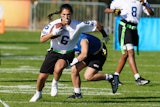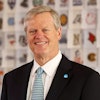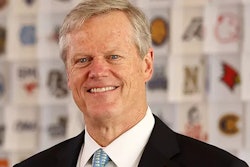As college basketball players around the country prepare for the upcoming NCAA Division I Tournament, opportunities are prime for the taking. There is the opportunity to win a national championship on the court for sure, but there is also a special window of opportunity to win a historic victory off the court.
The COVID-19 pandemic that has gripped the country for more than a year and all of the reverberations that have stemmed from it have created an unprecedented set of circumstances for the NCAA and all of its stakeholders. The cancellation of last year’s NCAA college basketball tournament and the hundreds of millions of dollars that were lost as a result of it has placed even more importance on this year’s tournament being played.
The players have more power and leverage than ever before as there can be no games without them and no tournament without games. They are in a unique position to force the hand of the NCAA to make a decision and fulfill the promise that was made back in 2019 to dictate how athletes would be able to benefit from their name, image, and likeness (NIL). The NCAA Board of Directors pledged to have this done by January 2021 and failed to do so.
 Dr. Marcus Bright
Dr. Marcus BrightWhat does “name, image, and likeness” (NlL) mean? According to the NCAA website they “are three elements that make up a legal concept known as ‘right of publicity’. Right of publicity involves those situations where permission is required of a person to use their name, image, or likeness.”
The current rules regarding NIL for Division I athletes according to the NCAA website are: “In general, to maintain NCAA eligibility, Division I student-athletes may not promote or endorse a commercial product or service, even if they are not paid to participate in the activity. Athletes may use their image to continue participating in nonathletically related promotional activities if they were initiated before college enrollment.”
The absurdity of players not being able to profit from promoting a commercial product while simultaneously being walking billboards for shoe companies that often have multimillion dollar apparel deals with schools, is just one example of the need for an immediate change. One way that athletes can bring about change in an expeditious manner when it comes to forcing action on the NIL issue is to boycott the 2021 NCAA College Basketball Tournament.
There is no doubt that taking this kind of action would be a risk and require tremendous courage. Players would potentially forfeit their lifelong dreams of playing in the “Big Dance” and winning the NCAA Tournament. Coaches and administrators could potentially try to use their institutional power to take away scholarships from student-athletes. They could be branded as pariahs and troublemakers, but then again, they could be branded as game changers and history makers.
Typically, when a group makes a move like this, the powers that be will try to make an example of someone to put fear in others to prevent them from repeating the action. This is one of the tools of control that is employed to keep people in a marginalized position. It will take unprecedented courage to break through this.
Making history usually requires discomfort and risk. It would be a short-term sacrifice for a long-term systemic change that would alter the livelihood and financial trajectory of generations of families to come. This is the perfect window of opportunity to create lasting change. There is a time for caution and conservatism and there is a time to lay it all on the line and throw down the gauntlet. Boycotting the tournament may not be the easiest thing to do, but it is the right thing to do. The status quo can no longer stand.
There are many well-meaning people who are deeply invested in maintaining the status quo like coaches, athletic directors, and NCAA administrators. They are part of an unjust system even if they themselves have good intentions. The status quo is not working for the masses of players and particularly their families in terms of getting an equitable share of the tremendous revenue that is brought in from big time college athletics.
Status quo practices and established meanings must be challenged in order for change to occur. Change will not just happen, but a struggle must be the prelude for change. Confrontation at critical moments like this is a requirement for change. A boycott of the NCAA tournament would create the climate for a moment of impasse that would force policy makers to take action. The boycott would no longer allow for fence sitting where people could play both sides. There could be no more delay. A definitive decision would have to be made.
Following the announcement of the boycott, a battle of competing narratives would most likely occur with stakeholders who are invested in the status quo saying that they cannot make it work financially at this time. This argument does not fly when several schools continue to pay head basketball and football coaches tens of millions of dollars to not coach via a buyout after they are released from their coaching duties.
Some will try to paint the athletes as spoiled, ungrateful, and unappreciative for the opportunities that big time college basketball has afforded them. Opponents will argue that athletes are already being paid through their scholarships that often include tuition, room, board, and sometimes a stipend.
Still, there is something unjust about athletic programs making inordinate amounts of money while the families of many of their players languish in poverty. The system of big time college athletics is set up to where everyone gets a large piece of the lucrative financial pie except for the actual players who people pay to see. In many states, the highest paid public employee is the head coach of a public university basketball or football team.
There is a need to rearrange and reconstruct the existing system of NCAA Division I athletics beginning with the implementation of name, image, and likeness rights. This is the time to do it. College basketball players, do you want to have another March Madness that will come, go, and be forgotten or do you want to take a stand that will be remembered forever and open up new doors of opportunity for generations to come? This year’s NCAA tournament “Cinderella” should be the players realizing their immense power and winning a championship for their own empowerment through refusing to play until action is taken.
Dr. Marcus Bright is a scholar and educational administrator.
















